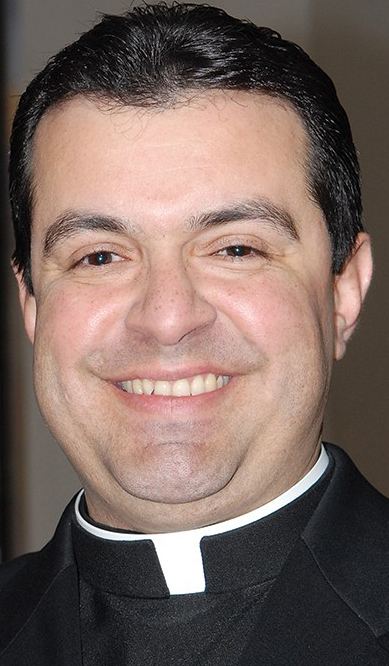In the past decade, there has been increased attention on gender dysphoria and gender discordance, especially among young children and adolescents, coupled with the “Gender Theory” response that the solution to such dysphoria is to affirm one’s “experienced gender” over and against one’s biological sex.
This prompts the Church to provide clear teachings for Catholics and to instruct staff, volunteers and contracted vendors on policies regarding the use of preferred pronouns, bathrooms and locker rooms, attire, athletics and extra-curricular activities, single-sex programs and gender reassignment.
To assist parish and school employees, the Archdiocese of Milwaukee has produced “Catechesis and Policy on Questions Concerning Gender Theory,” a document that includes four pieces of catechesis and seven policy items to help guide decision making. It also includes resources for pastoral implementation and a glossary of terms.
The Catholic Church teaches that the human person, created in the image and likeness of God, is a unified creature composed of body and soul. So integral, in fact, is the body to who we are as human beings that the body and soul together are fashioned and destined to live forever.
“All people should be treated with dignity and respect, including those experiencing interior conflict between their biological sex and their psychological identity, and our policy emphasizes the importance of that,” said Fr. Javier Bustos, vicar general and pastor of Our Lady Queen of Peace Parish. “However, we must also approach this disharmony in the light of truth that our biological sex is an unchangeable gift and a calling from God.”
The committee that created the document included theologians and medical professionals, and it is receiving national attention and will serve as the framework for a policy the USCCB is working on.
“Working together to spread the Gospel and grow God’s Kingdom, we are aware that each generation and age presents us with new challenges and opportunities,” said Archbishop Jerome E. Listecki. “The time in which we live today presents us with the need and gift of sharing fundamental tenets of basic Christian anthropology, one that understands that each man and woman is made in the image and likeness of God, imbued with dignity, and gifted as male and female. Unfortunately, this message is becoming increasingly obscured in our culture. It is time that we work together to clearly communicate and form people regarding the amazing gift of sexuality that God has given us.”
The policy will be followed by a pastoral plan that is being developed by Fr. Bustos and Pete Burds of the Office of Evangelization and Catechesis to help relate to people with gender identity questions. Fr. Bustos said the ministerial tool will provide a Catholic approach on gender dysphoria.
“We hope to provide parish and schools leaders, as well as parents, with a variety of resources: helpful language and training for how to pastorally walk with someone who is experiencing gender dysphoria, local counseling options (counselors who are aligned with the catechesis/policy put forth by the archbishop), and pastoral guidance for the variety of complex situations that may come forward,” Burds said.
Fr. Bustos said the questions he’s received about how to assist parents who are struggling with these issues with their children are a genuine concern. He added the pastoral plan will address that concern.
“It will be a ministerial response that is in line with our Gospel values,” Fr. Bustos said.
There have been critics of the report that say it will push people away from the Church. However, in the section entitled “A person’s ‘gender’ is inseparable from biological sex,” the catechesis reads, “Such persons should be treated with respect and with charity, and ‘no one should suffer bullying, violence, insults or unjust discrimination’ based on such experiences.” Under the policy, there is a section on protecting the vulnerable, and it implores parishes, schools and other Catholic organizations to take the necessary precautions to avoid bullying and to protect the integrity of those who may express tension or concerns about their biological sex.
“The catechesis and policy put forth by the archbishop is intended for parish and school leadership,” Burds said. “It provides the leaders of our local Church with sound catechesis and guidance to rely on when handling the variety of situations that may arise in their service to the people of God. And with that, we know charity must be at the forefront of how we handle this, and ultimately, every issue.”
Some of the source material used to help create the document include the Gospels, statements from Pope Francis and the Catechism of the Catholic Church.
In a June 8, 2015, address to the bishops of Puerto Rico, Pope Francis said, “The complementarity of man and woman, the pinnacle of divine creation, is being questioned by the so-called gender ideology, in the name of a more free and just society. The differences between man and woman are not for opposition or subordination, but for communion and generation, always in the ‘image and likeness’ of God.”
The pope addressed the issue again in Amoris Laetitia (“The joy of love”), a post-synodal apostolic exhortation addressing the pastoral care of families that was released March 19, 2016.
“Let us not fall into the sin of trying to replace the Creator. We are creatures, and not omnipotent. Creation is prior to us and must be received as a gift. At the same time, we are called to protect our humanity, and this means, in the first place, accepting it and respecting it as it was created.”
The Catechism of the Catholic Church (2393) states, “By creating the human being man and woman, God gives personal identity equally to one and the other. Each of them, man and woman, should acknowledge and accept his sexual identity.”

Fr. Javier Bustos
